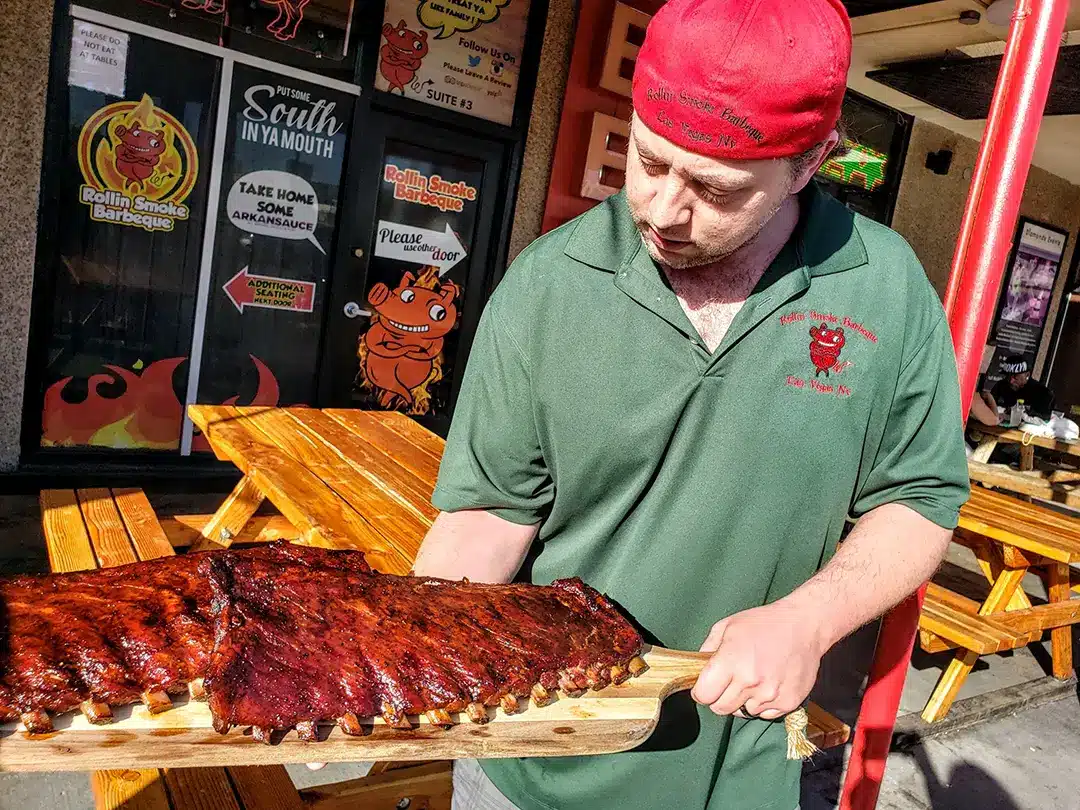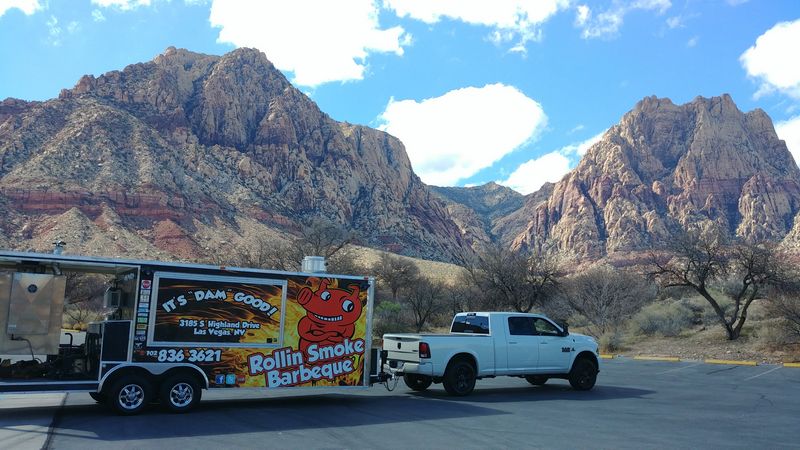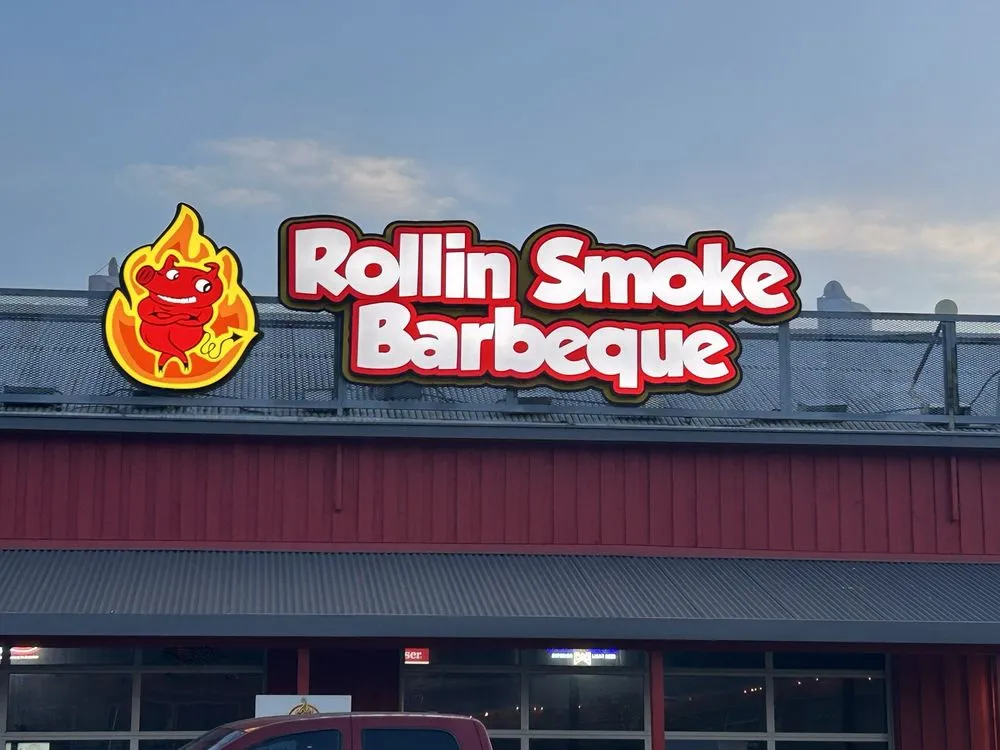Considering a restaurant franchise? Understand the importance of location, costs, business models, and support systems. Discover why Rollin Smoke Barbeque could be your ideal choice
What you'll find in this post?
- 📍 Importance of Location: Selecting the right location is crucial for attracting foot traffic and ensuring high sales. Aim for city centers over delivery-friendly spots.
- 💰 Cost Considerations: Understand startup costs, franchise fees, royalty fees, and other financial requirements. The Franchise Disclosure Document is essential for this research.
- 🏢 Business Model: Different franchises have different business models. Choose one that aligns with your personal preferences and operational style.
- 🛠️ Franchise Support: Ensure the franchise offers comprehensive support, including site selection, buildout assistance, training, and marketing support.
- 📜 Franchise Disclosure Document: This document provides vital information about the franchise's financial requirements and operational details. It's crucial for informed decision-making.
- 🍔 Joining a Franchise: Carefully review the franchise agreement and understand the support and operational expectations.
- 🔥 Rollin Smoke Barbeque: This franchise offers prime locations, a supportive business model, and a focus on high-quality barbeque, making it a strong option for potential owners.
Many of us dream of starting a restaurant franchise and joining the restaurant industry. We look across the country at restaurant franchises like Dairy Queen, Taco Bell, Papa John's, and Cold Stone Creamery, and we wonder what it takes to join the food industry and become franchise owners.
Franchising often makes sense for folks looking for success, and it can place franchisees in an exciting and fun environment.
To get started right and before putting down a franchise fee and an initial investment, future store owners should look beyond brand recognition and ask the real questions. Doing a little homework at the beginning can help eliminate the vast majority of restaurant franchises and highlight the franchise opportunities that make the most sense for someone wanting to be part of one of the hottest concepts today.
1. How Important Is Location When Starting a Restaurant Franchise?
Running a restaurant franchise means more than serving craveable food to a demanding consumer base. It's a business first and foremost, and brand strength can often hinge on the basics. That's why learning the kinds of locations food franchises target should be a priority for a potential franchise owner.
Franchise locations have always been crucial to brand growth. Today, with an increasing number of customers opting for a sit-down meal over delivery, restaurant franchises need to be more selective than ever about where they set up shop.
A legacy brand like Pizza Hut, Scooter's Coffee, or Del Taco is often situated at driver-friendly spots to make it easier for delivery. But those locales might not be ideal for modern customers searching for the best restaurant dining experience.
Look for a restaurant franchise that takes location seriously. Restaurants that place their franchisees in the middle of the action in the heart of the city are often more convenient for foot traffic, and that can translate to higher gross sales and a better chance for owners to expand beyond their original restaurant and begin thinking about moving from a single restaurant to become multi-unit operators.
2. How Much Does a Restaurant Franchise Cost?
The restaurant business is, at its heart, a business, and like any other enterprise, it takes liquid assets to get them started and keep them operating. When looking into popular BBQ restaurant franchise businesses, future owners must always consider — in no particular order — restaurant startup costs, initial franchise-fee concerns, royalty fees, certain financial requirements, initial investment, and other potential franchising issues.
The Franchise Disclosure Document was explicitly designed for this purpose. It can be an intelligent way for prospective owners to dig into restaurant franchises and get details about their franchise fee approach and other financial matters. It can help them narrow their list of many franchises down to the ones that work best for them and their situation.
A brand's Disclosure Document must be available by law, and it lays out the vital facts, figures, and minimum requirements in a single, convenient place.
Potential owners can use it to get a crash course on franchising with the business, such as the initial investment, financial incentives, minimum net worth required, initial franchise fee, royalty fees, and any additional issues specific to that business.
It makes good financial sense to compare Disclosure Documents of the fast-food or casual-dining brands of greatest interest before paying franchise fees to a particular one. Doing so helps put future franchisees in the driver's seat and allows them to move on their franchise opportunity confidently.
3. What Kind of Business Model Works Best for Restaurant Franchising?
Every business has its way of working, and the operating style at certain restaurants that connects with one prospective owner might not be another's cup of tea. A Taco Bell franchise might be right for a person looking for a brand with a more corporate feel.
At the same time, other franchisees might prefer a parent company with a more personal touch and a customizable take on the industry.
That information should be available in each brand's franchise agreement documentation, and it can be a massive help for potential franchisees who want to be part of a top restaurant chain but aren't familiar with how they do things.
Examining the business model can highlight the restaurant's approach regarding modern revenue enhancements like online ordering and apps, expectations for systemwide sales, and other factors directly impacting owners.
4. What Support Can I Expect From the Restaurant Franchise I Select?
After doing due diligence, sifting through the different restaurants, and choosing which business to join, the new owner has signed up with the brand. It's often a watershed moment in their career, and it can be an exhilarating time!
It also comes with some questions, though. Now that they're part of a parent company, what sort of support can they count on getting from the franchise?
Every business is different, but many brands understand their franchisees' needs, and they have a franchise support system in place to help ensure the owner has a partner they can depend upon during startup and beyond.
Those support systems can include assistance with location and site selection, along with help with the buildout and outfitting of the new restaurant. Look for a brand that keeps the aid coming after the initial phase and provides essentials like training support, administrative systems, marketing support, and more.
Become a Franchise Owner with Rollin Smoke Barbeque!
To make your ownership dreams a reality, connecting with a franchise designed for growth and positioned for the future is critical. That's the kind of restaurant business we're building at Rollin Smoke Barbeque.
We place our locations in prime spots for traffic in downtowns and sports stadiums and foster the kind of stay-awhile atmosphere that helps us create lifelong customers. We pair that way of operating with smoky, mouth-watering, fall-off-the-bone smoked barbeque and an owner-focused business model that keeps the support coming.
Find out how you can join the Rollin Smoke restaurant family today and become part of a new and expanding movement in casual dining!
FAQ's
1. Why is location important when starting a restaurant franchise
Location is crucial for a restaurant franchise because it directly impacts foot traffic and sales. Prime locations, such as city centers or high-traffic areas, attract more customers compared to delivery-oriented spots, leading to higher visibility and revenue for franchise owners.
2. What are the typical costs associated with owning a restaurant franchise?
The costs of owning a restaurant franchise include startup costs, franchise fees, royalty fees, and ongoing operational expenses. It's important to review the Franchise Disclosure Document (FDD), which outlines all financial requirements and helps prospective owners understand the total investment needed to start a franchise.
3. What business models are common in restaurant franchising?
Restaurant franchises operate under various business models, ranging from corporate structures to more flexible, owner-focused approaches. Prospective franchisees should choose a model that aligns with their preferences, whether they seek corporate support or a more customizable operational style.
4. How can a franchise support system help new restaurant owners?
Franchise support systems assist new owners with essential elements such as site selection, buildout assistance, training, and marketing. Strong franchise support ensures that owners receive guidance during the startup phase and ongoing help as they grow their restaurant business.
5. Why is Rollin Smoke Barbeque a good choice for potential restaurant franchise owners?
Rollin Smoke Barbeque offers prime locations in high-traffic areas, a supportive business model, and a focus on quality barbeque. With an emphasis on owner growth and comprehensive support, it presents a strong option for those looking to enter the restaurant franchise industry.






